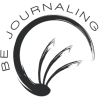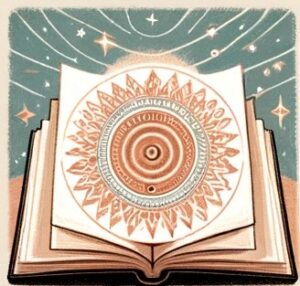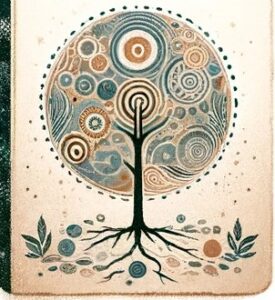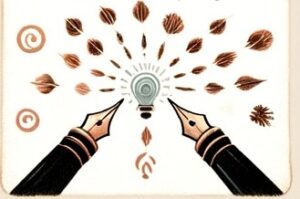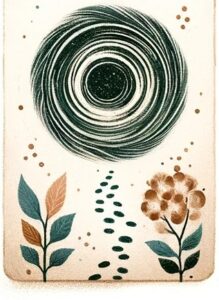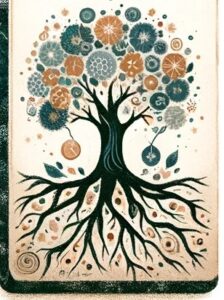Introduction to Journaling
Journaling is a process for capturing your thoughts, feelings, experiences, and results through writing. It involves taking time to explore what you value in life, capture memories, connect with your deeper self, recognize what will create the life you appreciate, and strengthen your bonds with others. More than this though, journaling is the simplest, yet most powerful way to embrace your creativity and turn ideas into reality.
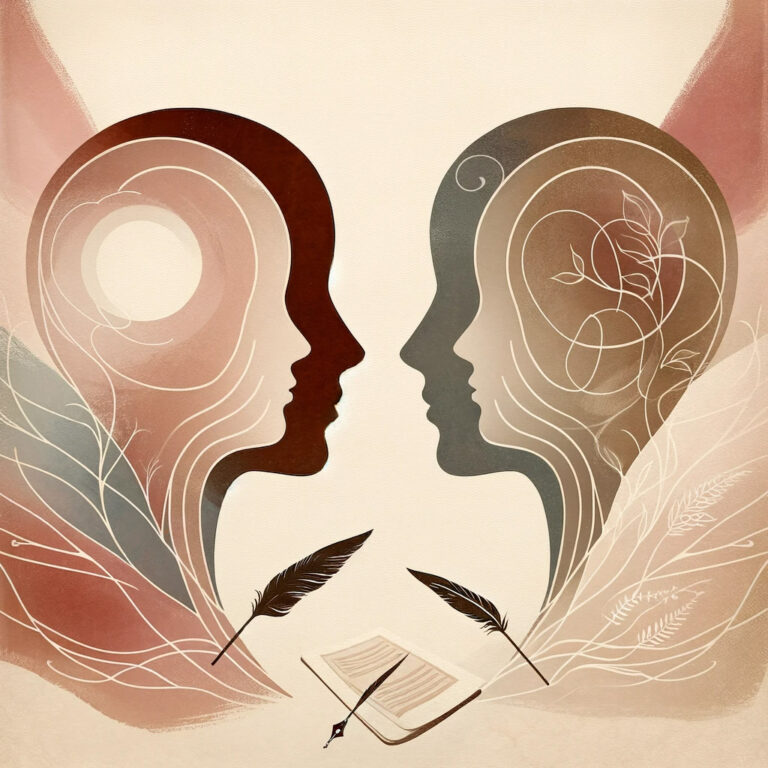
Contents
Read the complete guide or click a chapter to go directly to it.
The unique BE Journaling Experience™ can help relieve stress and manage your emotions in ways you’ve never experienced before. The beauty of journaling is that you get to explore your life in ways that are personally meaningful. There is no right or wrong way to journal. While the BE Journaling Experience™ is an evidence-based journaling practice that maximizes these benefits, in this guide, we’ll teach you everything you need to know to create your very own unique practice.
As long as people have been writing, whether by charcoal on cave walls, pen on paper, or finger on screen, they have recorded their experiences, thoughts, and emotions. The history of journaling dates back to the earliest cave paintings with depictions of successful hunts, but became more accessible to everyone around the 16th century, when people used personal writing to record detailed accounts of their life experiences and deepest thoughts. For example, the first true autobiography was written by Saint Augustine of Hippo around 400 CE, it was called Confessions(01). The first autobiography written in English was The Book of Margery Kempe and was written in 1440 CE. NOTE: Some would argue that the earliest autobiography is Oration I by Greek Sophist Libanus, written sometime between 314-392 CE.
Lewis, Clark, and Darwin are some of the earliest, most well-known, and most valuable journals. Their importance cannot be underestimated. Imagine how valuable your very own story will be, whether it is a loved one like your child, or simply someone who needs to hear that someone else experienced what they are experiencing. As we have heard said, those with many years of life experience are the evidence that things can be endured.
Since the 1970’s books on journaling have been published regularly including; The New Diary by Tristine Rainer(02), At a Journal Workshop by Dr. Ira Progoff(03), and One to One: Self-Understanding Through Journal Writing by Christina Baldwin(04).
With the rapidly expanding use of social media and the rise of the so-called lifestyle influencer, journaling has taken on completely new forms, from those who vlog about their #vanlife on YouTube, to homegrown chefs sharing their latest recipes on Facebook. It could be said that journaling has become ordinary and commonplace. While that may be true, most people miss the greatest benefits of journaling in their own lives.
That is why we created this guide for you.
Take for example, a study conducted at the University of Victoria, which found a positive correlation of intelligence with the simple act of writing(05). This along with the fact that one of the strongest predictors of intelligence is your (or your child’s) vocabulary and you can begin to see how the habit of journaling can be the foundation for an exceptional life.
According to researchers, even journaling without intention can have similar positive effects as intentionally attempting to change your mental state in other intentional ways. This is one of many reasons why journaling is a key to your happy life(06). It helps focus your thoughts and enables you to improve aspects of your life without burdensome planning and unnecessary details. This in turn improves well-being, emotional regulation, prioritization, happiness, and even decreases anxiety.
You know, as well as we do, that many of the world’s greatest successes were avid journalers. These include Leonardo da Vinci, Anne Frank, Thomas Edison, Charles Darwin, Emilie Davis, Albert Einstein, and Marie Curie.
Social psychologist James W. Pennebaker at the University of Texas, who is a pioneer in writing therapy, has said, “it’s about a whole cascade of things that occur!”(07) Keeping a journal of what is happening in your life, can range from documenting the mundane to acknowledging traumatic events, from writing personal anecdotes to labeling emotions. These are not only processes for journaling but are also benefits of journaling. They change thinking, improve emotional regulation, and strengthen your actions in beautifully ambitious ways…ways that others unfortunately don’t get to experience.
Dr. Lieberman and colleagues found that putting your feelings into words helps to powerfully regulate emotions(08). Their study found that writing supports individuals, especially men, in putting their behaviors and feelings into words. Simply put, writing helps you recognize and work through your emotions.
In a 2019 study at Duke University, participants were asked about their experiences with traumatic events(09). The participants underwent six weeks of writing, which comprised mindful, poetic, expressive, and transactional journaling. Guess what? The study revealed that writing decreased their stress levels and increased resilience(10). Journaling can meaningfully assist in recovery from trauma.
All of these benefits don’t even touch on the fact that journaling has repeatedly been found to increase the likelihood that you will accomplish the ambitions you aim for in life. Simply put, people who write down their life ambitions improve the likelihood they will accomplish them, above and beyond those who do not write them(11).
What is Journaling?
Journaling is a way of recording your thoughts, feelings, experiences, hopes, and dreams through writing. While some would argue that you can journal through any medium, as we’ve already shown, there is something powerful and unique about the act of writing. So, for us, the key component of journaling is the act of capturing these things through writing. Something truly profound happens when you write things down, you make thoughts, feelings, and experiences tangible. It is this type of creative writing that pushes your life toward self-discovery, personal growth, regulated emotions, and improved your health12,13,14.
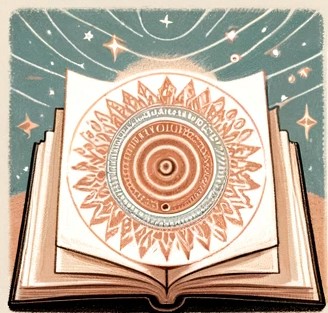
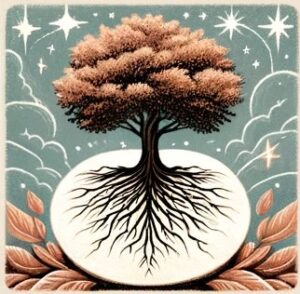
We believe in journaling, especially BE Journaling™️, to be the most powerful method of self-discovery. If you’ve used our tool for A.L.I.V.E. Bids, you know that you should be a scientist of your own life and journaling provides a sanctuary where you can say anything you want, whenever you want, without fear of being judged, embarrassed, or shamed. This “sanctuary” aspect of journaling is why many report that they experience a profound feeling of relief when they journal15. It is a method of actualizing and processing the entirety of your life, including those unpleasant ideas, profound emotions, and everyday occurrences.
One common misconception about journaling is that it requires you to sit and write pages and pages of your every thought, which is not true. Journaling is simply the act of capturing your life through writing, this can mean a single word in your notes app or several pages cataloguing the details of a day or experience. As you know, there is no right or wrong way to journal. In fact, in our own experiences, sometimes a journal entry is a single word, sometimes it is a picture, and other times it is a page of deep thoughts. The only requirement we offer is that you capture thoughts, feelings, or experiences in a way that is meaningful to you and that you use those to improve your life.

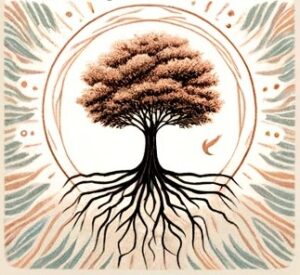
It can be a record of what you did all day, including your daily routine, something that moved your heart, or something that inspired you in a new way. Somedays, you will write a single word that has profound meaning, and other days you write endless pages; there is no boundary or restriction to journal writing. It really is about trying to understand how you see the world around you, recognizing what you are putting out into the world, and identifying opportunities for improvement.
It is one thing to think something, it is an even bigger thing to formalize it by writing it down. As you journal, you will find yourself hesitating to write some things because you realize that they are not authentic or valuable, while also writing things that are surprisingly candid and meaningful. Other times, you may hesitate to write something out of fear, yet you will feel empowered as your write. That is the beauty of journaling.
Some start their day with journaling, others write at the end of the day. Whether you write in the morning or at night, we recommend making it habit16. You may find, as we have, that writing something quick and simple in the morning, followed by writing some thoughtful reflection in the evening to be extremely valuable (have you checked out our guide on BE Narrating?).
With that said, did you know that morning journal writing is beneficial for optimal brain functioning? Your brain is most creative when you wake up in the morning17. Several anecdotal experiments relate that your creativity can be unlocked in the morning. For example. according to Julia Cameron, morning journaling is the key to unlocking creativity for your day.
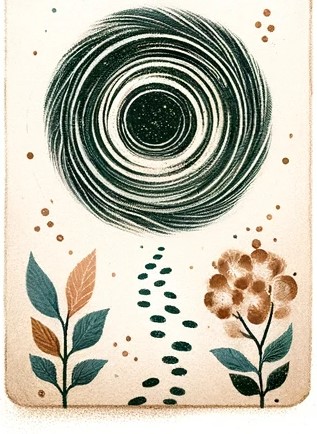
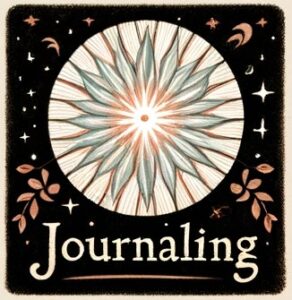
Leo Babauta of Zen Habits suggests writing important things that happened in your day in bullet points rather than writing full sentences, to never miss more than two days of journaling, and keep your journal where you won’t forget it.
So, what is journaling? It is the act of capturing your thoughts, feelings, actions, hopes, dreams, and experiences in writing. Whether that be one word every week or pages every day, what really matters is that you are authentic and hopeful.
Why Should I Journal?
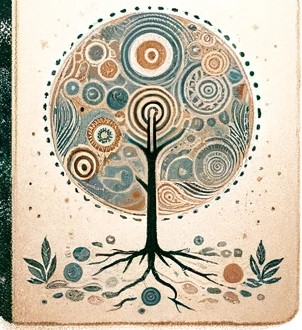
There are a variety of reasons for journal writing. Often, people think of journaling more like a diary, to preserve memories, thoughts, celebrations, and creativity. However, writing down your stressors, fears, sorrows, and difficulties is just as important because journaling helps improve awareness of your thoughts, bring intentionality to your actions, and improve your results through changed behavior.
Maybe you’ve heard that one definition of insanity is repeating the same action over and over again while expecting different results, well, according to this philosophy, journaling is the best way to avoid insanity. Capturing your life through writing, is an evidence-based way to change your behaviors for the better.
One study even found that something as prescriptive as mathematics could be improved through journaling, journalers had more original mathematic answers and better test scores18.
The same can be said about journaling and your life, you will come up with more original answers and score higher on the tests life throws at you.
The benefits of journaling are likely because it provides a framework to assess your thoughts, emotions, and actions. Without this, it can be difficult, if not impossible to identify, acknowledge, and assess your life in a consistent way. When things stay in your head, they change quickly based on what’s happening in any given moment or with your current emotions. However, when you write things down, you create a tangible record of your life that cannot easily be dismissed, therefore you must confront it, for better or for worse. When you read your own thoughts and experiences, they take on a realistic dynamic that encourages growth.
This can be difficult to accept even though the benefits far outweigh the costs. This profoundly simple effort produces meaningful insights and self-awareness. Journaling is your essential tool for self-improvement and more importantly self-care.
Take for example problem solving. Journaling helps polish your problem-solving by facilitating the practice of brainstorming. In this way, you can both anticipate future outcomes and improve your efforts.
Gratitude is another excellent reason to journal. Anything you write down will take on greater meaning and power. This is as true for gratitude as anything else. This is why journaling is a great way to express gratitude. The research on gratitude is clear, it improves life satisfaction and effort19. If you’re interested in personal development, then you are interested in gratitude.
Whether it’s your relationships you care about, your own growth, personal fears and anxieties, or a sincere desire to improve the world, journaling will tap into your inner drive and remind you that words are important. When you write your words down you strengthen your memory, making it difficult to ignore commitments and ambitions.
Journaling simultaneously captures how you see the world while increasing self-awareness, processing emotions, illuminating the path forward, and connecting experiences with your most authentic self. The best part of all, it is completely you…you get credit for all of it because it’s all you.
Journaling goes beyond enhancing your sense of self, studies have shown that journaling can improve your immune system and reduce the influence of stress and anxieties on your physical health. Dr. James Pennebaker and Joshua Smyth found that writing about stress and emotions boosts your immune system20.
Sometimes journaling helps you work through difficulties, other times it helps you dump your stress, anxiety, and pain by writing about them, accepting them, and moving forward. Through journaling you can identify patterns and precursors to unpleased or unfavorable experiences. This process provides a data point for your life which helps make meaningful connections, evaluate what led to your lived experience, and ultimately help you improve future experiences. This is why so many health experts recommend journaling, it has the power to improve your mental health by managing the symptoms of depression, stress, and anxiety21. Some of the benefits of journaling are astounding. In a study of older adults in New Zealand, researchers found that journaling improved healing time for physical injuries.
Documenting and describing your thoughts and deep feelings helps to lessen physiological as well as psychological trauma, which improves physical health and even heals.
Journaling is also beneficial in the context of counseling therapy, to understand your identity, sense-making, interpersonal effectiveness, meaning-making, and to promote problem-solving22.
Surprisingly, the research on expressive writing as a a therapeutic approach is still in its early stages but has gained recognition and popularity in recent years. Recent research in psychotherapy revealed that patients who receive psychotherapy and were asked to write about their emotions, thoughts, and experiences, had reduced symptoms of depressions and anxiety, and showed greater progress during therapy sessions. This is especially true for those suffering from GAD (Generalized Anxiety Disorder), for whom journaling was found to be an effective way relieving stress.
What’s more a study out of Cambridge University found that participants who were instructed to write about the most upsetting and stressful events in their lives and how they felt in those situations, had fewer visits to health care centers four months later23. This study concluded that journaling about stressful and traumatic experiences has measurable effects in improving physical and mental health.
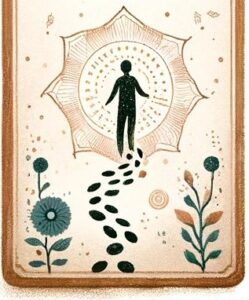
We could share innumerable studies and anecdotes about the power of journaling because its effectiveness has been shown time and time again across all domains of life. With that said, the real power of journaling will only be found as you discover and create your own journaling habits.
Our top benefits of journaling include:
- Encourage Direction & Achievement in Life
- Catalyze Profound Learning
- Strengthen Commitment
- Reduce Stress
- Create Deeper Connections with Others
- Sharpen Memory
- Improve Mood
- Cultivate Mindfulness
- Promote Good Habits
- Increase Life Satisfaction
If that’s not enough for you, consider these benefits as you build desire and momentum in your own process of journaling.
- Improve writing skills
- Improve memory
- Encourage self-confidence
- Inspire creative thinking
- Improve physical health
- Improve mental health
- Boost emotional intelligence
- Increase self-awareness
- Improve mental clarity and focus
- Improve emotional well-being and happiness
- Clarify thoughts and get to know yourself
- Work-through Traumatic Experiences
- Improve problem solving skills
- Express gratitude
- Overcome fears
- Celebrate success and achievement
- Connect with loved ones
- Explore and learn
- Make meaningful connections
- Enhance motivation and purpose
Journaling is one powerful way to use your energy. Through writing, you can identify your strengths and weaknesses, feel, experience, connect, commit, reflect, and grow.
According to the psychologists Roy Baumeister, it can be exhausting to think about your entire day, as the average person does 150 different tasks in any given day. Journaling helps you focus on what really matters and either accept or forget about the unnecessary details.
Why not start journaling today? You know the benefits extend beyond your day-to-day life and into your work, your worldview, and your relationships24. Create meaningful and positive growth through journaling today.
Now that you want to join the millions of other who use journaling and an even more exclusive group that has benefited from The BE Journaling Experience™, where should you start? Here’s a quick guide to establish your own journaling practice, whether you’re brand new to journaling or are ready for The BE Journaling Experience™, we have some insights to help.
How to Journal
There are only two fixed rules to journaling.
- The first is to simply start. As Richard Branson has said, “Start before you’re ready and figure it out along the way.” This is as true for journaling as it is for anything.
- The second rule is that you should manually write things down, we strongly advocate for the old pen-and-paper method. You can use an app if you must but as we have already covered, writing engages deeper parts of your brain and increases commitment above and beyond typing.
The rest of the journal process is your playground to explore.
When you start, you will want to consider which type of journal is best for you. We encourage you to explore a variety of journal types to find the one that you will stick with and get the most value out of.
Two other considerations are your breadth and depth of reflection. Breadth of reflection is about how many different areas of your life you would like to explore, learn, and grow in. Some people love journaling about anything and everything, while others prefer to journal about very specific topics. Depth of reflection is how deep you would like to explore particular areas. Some people just like to touch on an experience through a single word, while others like to think deeply about it and try to capture it in as much rich detail as possible. As you journal, you’ll discover whether you like journaling about one topic or many and whether you like reflecting efficiently or deeply.
If you were wondering, research has shown that individuals who have experience and exposure to a lot of different areas of life (breadth) combined with deep expertise in just a few (depth), are more likely to be innovative and successful25.
There are three broad categories of journals which include open journals, guided journals, and structured journals.

1. Open Journals
Open journals are free flowing, they have the least structure and the most flexibility. They allow you to write and create whatever you want. They are by far the most adaptable journal because they can be whatever you want them to be. They are also the easiest to get started with as the only requirements are something write with and a place to write. In fact, you may have had an open journal as child that you called a diary.
An important note is that because they are so flexible, some people report feeling overwhelmed or even stuck. While some people love the freedom of an open journal, others find that because they are so unstructured, they don’t know where to go next and have no way of evaluating their progress. If you want an open journal experience with a minimal amount of structure, try setting an amount of time that you will write, say five or ten minutes. Don’t focus on what you write or how much, but instead focus on spending a specified amount of time capturing your life through writing. Open journals are great for people who aren’t sure what they hope to learn but are looking for a way to explore their life through meaningful reflection.
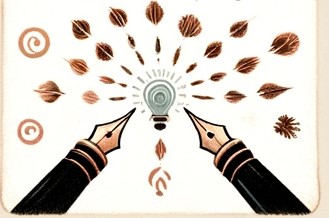
2. Guided Journals
Guided journals focus your attention on particular topics or aspects of life and encourage you to reflect on items related to them. In contrast to open journals, they offer some recommendations for what to reflect on and write about. These guides may take the form of images, topics, questions, or lists.
Guided journals provide guidance without pressuring you to follow a strict route. With a guided journal, you will not have as much freedom as you would with a free form journal, but you will have direction on where to focus and what to capture. These are best for individuals looking for balance between exploration and deep learning. However, be sure to find a guided journal that covers a topic or takes an approach that matches your ambitions.

3. Structured Journals
Structured journals give you the most direction and structure. While they may limit your freedom in some ways, you should never feel lost about what to reflect on or capture. Structured journaling is a method in which you follow a template that directs you through specific questions, prompts to respond to, and criteria for what to write in your journal.
While structured journals provide the most guidance, they also offer the least flexibility. Often these journals are best for individuals who know exactly what they would like to learn and what they want out of life. They are exceptional if you are looking for deep insights into a particular area of your life.
Once you have chosen the category of journal you would like to experiment with, you can move to establishing some journaling practices. Remember, this is all about you, you can always change the category of journal you are using and adjust your methods as your needs and experiences change.
Creating Your Own Practices
No matter which category of journaling you choose, there are a few things that will support your experience. These include establishing expectations, reflecting, connecting, creating patterns, learning and growing, and rewarding yourself.
While these elements may seem intuitive, they are invaluable, and all too often neglected when individuals establish their own journal routine.
Establish Hope
“Without clear hopes and aspirations, you cannot guide your life. Journaling guides you toward your hopes and aspirations.” – BE Journaling
Establishing expectations is not only about giving you something to shoot for, but also about ensuring you do not get discouraged. When you establish realistic expectations, you give yourself something to strive for every day and create a reason to celebrate growth. We suggest starting with small expectations that you can build on over time. It is a lot more motivating to discover that your expectations were too low than to discover that your expectations were too high, so start small. By starting with small expectations, you will feel successful, increase your motivation, and establish a foundation to build on. For a powerful method of setting expectations and experiencing life to its fullest, check out our A.L.I.V.E. Bids. So, whether your expectations are to journal 15 minutes a week or 5 minutes a day, hold yourself accountable to some small expectations and grow them as you yourself grow.
Reflect
“The life you live is a reflection of all that you are – your hopes, aspirations, relationships, fears, worries, and potential waiting to be explored.” – BE Journaling
Writing your experiences, thoughts, emotions, and aspirations is beneficial in and of itself, taking time to reflect before and after you write will provide you with increased clarity and perspective. Reflecting before and after writing ensures that what you capture is meaningful. Imagine if every thought or emotion you ever experienced was captured, would they all have equal value? Or, would some be more beneficial and meaningful than others? This is the importance of reflection, it helps you capture those things that are most meaningful, which will help direct your attention and efforts moving forward. You’ll find that this helps make progress toward your most important ambitions and concerns. When it comes to being completely honest with yourself, journaling is the ideal place to do so. You are the expert on your own experiences and when you reflect through journaling, you increase and personalize this expertise. Additionally, this process provides a way for you to investigate your thoughts, feelings, actions, and experiences, rather than jumping to conclusions or making assumptions. You’ll never be disappointed that you took the time to reflect on your life.
Connect
“Connection is the fabric of shared experience.” – BE Journaling
Possibly the most surprising way to leverage journaling is to strengthen your relationships. The process of BE Narrating (empowering shared narratives) helps develop and maintain healthy relationships through communication. This could be with an intimate partner or even a manager at work, and the result is the same, it builds meaningful connection with others. When you use reflective and purposeful words to connect with those around you, it is profound. This is a tangible form of communication that improves dialogue and collaboration and contributes to your sense of being heard and understood.
Create a Pattern
“When you are able to see the beauty in a messy life, you appreciate the patterns that form all our lives.” – BE Journaling
You want to develop patterns that work for you. One of the simplest methods to develop a journaling habit is to write at the same time every day. Choose a time of day when you can commit to reflecting and writing. Your patterns may be about the day of the week you write or they might be the duration, subject, or amount of writing you will do. Some people choose to answer the same questions every day, such as “what am I grateful for?”
Creating journaling habits that are empowering and match your ambitions is one of the most important aspects of success. The practice of journaling will get easier with time and you will find yourself experiencing less resistance as you go. Take some notes about what works for you and what does not, then adapt and adjust your journaling patters until you find the best ones. With your journaling practice, the more purposeful you can be with it, the more success you’ll find.
Learn and Grow
“If you aren’t learning, then journaling isn’t working for you.” – BE Journaling
If we could sum the purpose of journaling up into one thing, it would be learning. That’s a big reason why we created A.L.I.V.E. Bids which are a learning focused way to create ambitions. When you learn, you grow. Journaling is an exceptional way to examine your thoughts, feelings, beliefs, and experiences, but what you learn is the real key.
It could be argued that journaling is the most effective tool for self-improvement, your most effective tool to maximize growth. The practice of journaling is a tangible way to process your feelings, particularly those that are inhibiting your growth.
In this way, the practice of journaling improves self-awareness by providing regular insights that are deeply personal and therefore more likely to result in action. Through journaling, you will become more intentional in your actions by reflecting before you act, which will empower your actions to produce the results you desire.
Reward and Encourage
“The future rewards those who keep moving forward and those who reward themselves keep moving forward.” – BE Journaling
One thing we know from psychology is that you are more likely to do things that you are rewarded for. It is important to reward yourself for the effort you put into journaling. Whether you do it once a week or 20 minutes a day, reward yourself. Imagine if you could read the journal of someone you love and admire (maybe an ancestor), wouldn’t you love to learn from their life, even if they only wrote twice a year? The same goes for you, whether reading your own journal 5 years from now or someone else’s in 25 years, it will be valuable. So, please reward yourself for it.
One of the most beautiful aspects of journaling is how the very act of journaling is rewarding. The process of journaling is both a labor requiring effort and a cognitive reward encouraging more journaling in the future. Whenever you write about your life or about doing good you’ve already accomplished something.
You’ll reinforce the good about yourself and give specific direction for anything you want to change. In this way, rather than feeling depressed or overwhelmed about your perceived weaknesses, you’ll be encouraged and have direction and intention.
When used in conjunction with whole-person health approaches, journaling is recognized as a method of developing well-being on all levels this including: psychological, emotional, physical, and spiritual. That’s why journaling is utilized as a tool for learning and development across a range of disciplines, including leadership, business, education, psychology, coaching, health, creative writing, and counseling. The act itself is rewarding and encourages further personal development.
As you explore and establish your own journaling habits, you will want to reflect, establish expectations, connect, create patterns, learn and grow, and reward yourself. As you do, you’ll find that journaling takes on greater importance in your life and you will experience the power of journaling in profoundly personal ways.
“Anyone can be convinced they know a trivia answer but the goal is to know yourself.” – BE Journaling
If you want to take your experience to the next level, we’ve been told time and time again that these next practices transform journaling experiences and lives.
5 Best-Practices to Leverage
After building your journaling foundation, it’s time to take your practice to the next level with these five methods. Keep in mind, these methods aren’t for ordinary journalers, they are for those who want the most growth out of their experience and their life. They include personal experiments, profound questions, radical candor, meaningful reflection, and intentional writing.
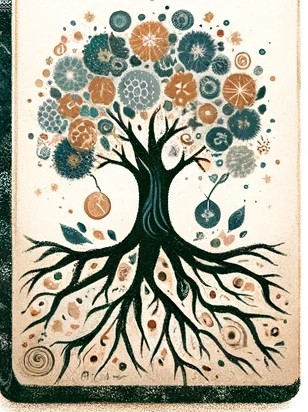
Personal Experiments: You are the scientist of your own life and no one else will ever know more about your lived experience than you, therefore, you want to perform personal experiments. The more experiments you perform, the more you learn about yourself and the life you want. If you don’t have experiences, what will you reflect on and learn from?
This is the reason that every Belonging + Empowerment Journal™ includes specially designed A.L.I.V.E. Bids™ to support you in experiencing life. Create experiments that excite you and you believe will teach you the most. We suggest experiments that deepen your personal experience in an important area of life or experiments that expose you to an area of life that you would not know otherwise.
Profound Questions: Did you know that most great discoveries began with a question? The better the question, the more you will learn about yourself, your relationships, and your life.
In fact, there is a correlation between the quality of your questions and the power of your answers. Some questions you will want to make a regular part of your journaling are, “What? How? Why?”
It’s amazing how many people don’t ask themselves these questions, maybe they are afraid of the answers or maybe they don’t have confidence they can find answers. We believe in you and know that as you ask yourself profound questions you will discover beautiful things about yourself.


Radical Candor: It’s easy to avoid hard truths with other people and sometimes it’s easy to fool yourself, but your journal is a place for radical candor. In fact, journaling is most effective when you are brutally honest with yourself. In other words, when you are willing to practice radical candor. How can you experience growth and improvement if you aren’t honest about your own experiences?
Radical candor helps you confront your reality. If you want to grow, if you want to identify aspects of life that bring joy, if you want to connect your authentic self with others, you must be radically candid.
Many people are afraid that if they are radically candid, others will shun them, or worse yet, they will despise themselves. In fact, radical candor is the only way to truly connect with other people, address areas of improvement, explore areas of passion, and understand yourself.
Meaningful Reflection: Reflecting on your experiences, ambitions, thoughts, and your emotions is as important as the experiences themselves. Many have argued that meaningful reflection is even more important than the experiences themselves. This is because meaningful reflection can produce improvement even if you only imagine an experience.
Consider that elite athletes use visualization to improve their performance and you can use it as well to improve your life satisfaction. When you forecast events that might happen and plan for them, you improve their outcomes. This is an example of the power of meaningful reflection, even though until it happens, it is all imagination.
We created BE Narrating to support your reflections in a structured and purposeful way. Whatever your approach, be intentional and thoughtful and you’ll find that your reflection uncovers deeply meaningful insights.


Intentional Writing: Writing engages deeper neurological activity than just thinking about something and more than typing something. Writing has a powerful effect on your future thoughts and actions. Much of this is because writing is the simplest way to make ideas tangible and turn them into reality.
When you write things down, you become more conscientious and aware of it, far more than just thinking or dreaming about it. Similar to the old saying, “A dream unwritten is just a wish.” a thought, an experience, a hope, an idea unwritten never becomes reality.
By writing ideas, experiences, and ambitions down you increase your commitment to those things. You give yourself something tangible to reflect on and work from in order to improve future efforts and results. In contrast, when things stay in your head, they do not have that same power. This is why being intentional about your writing and making a habit is so powerful for your growth.
We share these five best-practices with you because we want you to get the most out of your journaling experience. Whether you use BE Journaling™ or an ordinary piece of paper, striving for these habits will dramatically improve your results. It just so happens that BE Journals are built to establish not only your foundational journal skills but to naturally encourage these practices for maximum growth.
We believe the BE Journaling Experience™ is the most powerful evidence-based journal available. If you are unsure about where to start, keep reading to discover some categories that might help you. Whether you choose a BE Journal or not, we want you to experience the benefits of journaling and experience the improvements to your own life.
Journal Ideas to Get You Started
Journaling is a tremendous activity to open your heart, surface insights, harness creativity, and tap into the inherent value within you. The ideas generated as a result of reflective thinking will lead to positive changes in your life and your relationships. It not only improves your overall happiness, journaling will also enhance your critical thinking and decision making skills.
If you’re unsure where to begin but definitely feel the urge to start, we recommend a BE Journal, but you can also read through the categories and examples below to find one that fits your interest and motivation.
We would rather you start with something today than wait any longer to experience the benefits of journaling. The categories of journals we’ve identified include purpose journals, virtue journals, creativity, interest, and BE Journals.
Below we go through the characteristics of each category of journal, along with specific examples so that you can find the right one to support you in your journey.
Purpose Journaling
Purpose journaling is focused on creating purpose in your life. These journals are focused on goals, dreams, aspirations, passions, and tend to elicit deep meaningful thought about the big things in life.

Dream Journals
Dream journaling helps you to capture what you envision for your life. Often dream journals start by drafting an actual vision for your life at various stages in the future. For example, you might capture what you dream of for your life in 6 months, 1 year, 5 years, 10 years, etc. By writing down your hopes and dreams, you focus your attention on those things, especially on what you can do, rather that what you cannot, and are therefore more likely to act in ways that encourage your dreams. Even if your dreams never become reality, according to the non-profit Action for Happiness studies show that simply writing down your dreams makes you immediately happier.
You can get very specific about your dreams as well by setting specific objectives, this is where goal journals come into play.
Goal Journals
Goal journaling helps to boost your productivity and aid in implementing good habits. Where dream journals focus on the big things in life, goal journals may focus on the really big things or they might focus on small daily goals. Either way, goal journals bring intention and direction to ambitions you have. They will also help you find the right goals for yourself and experiment. BE Journaling leverages these elements through A.L.I.V.E. Bids, which are growth and learning focused ambitions.
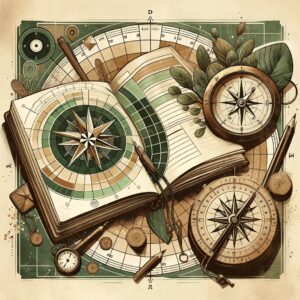
Bullet Journals
Bullet journaling has gained a lot of popularity recently. They often look like a self-made planner with cute doodles on a blank or dotted page, but you can add much more if you want. This type of journal helps to coordinate your life through a specific system of writing which includes notes, to-do’s, long-term wants, monthly calendars, and more. Many offer specific phrases, colors, shapes, or attributes for these various elements. Essentially they are a more free flowing planner.
Productivity Journals
Productivity journaling is all about prioritizing projects, activities, and tasks. These journals are based on a focused time technique to help manage your time. Many times these journals have specific structures to encourage detailed time management. Occasionally they will include things like time audits, to help you identify how you spend your time. Productivity journaling is famous among successful business personalities and is an excellent way of tracking your success by focusing on the task level of your habits.

Virtue Journaling
Virtue journals focus your writing and reflection on nurturing virtues you care about. With virtue journaling, you explore what you consider to be excellent traits of character. These may be traits you have witnessed in others and hope to exemplify in your own life, or traits that you believe either your life or the world are in need of. While there is no definitive list of virtues things like acceptance, care, authenticity, commitment, compassion, courage, integrity, determination, optimism, etc. all fall into this category. A few of the more common virtue journals include gratitude, kindness, and love journals.
Gratitude Journals
In positive psychology – the scientific study of happiness – keeping a gratitude journal is an exceptional way to promote optimism and mental well-being. Additionally benefits of gratitude journals include mindfulness, self-care, and emotional intelligence. It is the process of regularly writing and reflecting on things for which you are thankful that make up gratitude journaling. At BE Journaling we believe in the power of gratitude and that’s why we encourage capturing moments of gratitude in all of our journals.

Kindness Journals
Kindness may be one of the most needed virtues and a Kindness journal is an ideal space to bring awareness to idea, feelings, experiences, and stories of kindness. Kindness is a significant human strength that has a positive impact on subjective well-being, not only for the individual giving but also the one receiving. Honest and enduring friendships and connections are formed through genuine acts of kindness and journaling about kindness helps encourage more kind behavior.
Love Journals
Love is a unique emotion and experience that can be difficult to put into words, kind of like trying to describe the taste of salt without using the word salt. That’s why love journals can be so profound, they challenge you to put into words things that are difficult to explain, and by doing so, you will learn incredible amounts about yourself and others. You might even capture your own love experiences, which some research shows can help you recall what it was that created the love you have for the people you care about most. A healthy relationship may be built on this basis, and you can observe how you develop as a result of a love journal.

Creative Journaling
Creative journaling is about fostering your own creativity. With creative journaling, you might write, draw, or even document your innovations. The intent is to provide space and time to engage with your creative side. In fact, many types of creative journals are focused on other forms of capturing ideas than writing alone. Several types of creative journals include artistic, poetry, painting, and comedy.

Artistic Journals
An art journal is a visual diary where you may develop your artistic skills while also expressing yourself. By keeping an art journal, you can get new insights and understanding about your art by connecting it with other aspects of your life, including the emotions it draws out of you. Combining journal writing with artwork is, in our opinion, one of the most beautiful combinations.
Poetry Journals
Poetry journaling takes your written words to an entirely new level. It is one thing to capture your life, thoughts, and emotions through word, but putting those words into poetry adds a level of creativity that can be profound. In fact, did you know that when you add boundaries to your creativity, you actually become more creative? Poetry is a boundary to you creativity that will actually make you more creative. And, if poetry is your particular creative outlet, you’ve just doubled up on the benefits.
Writing Journals
Granted this one may be a given for anyone who calls themselves a writer. Yet, you may be surprised by how many writers don’t keep a journal. One unique aspect of a writing journal is that it should be readily available at all times because you never know when a great idea or insight will come to you. Then, you should take time to review your notes to ensure that you collect the best of your ideas for your final product.
Painting Journals
You might assume that a painting journal is all about artwork in the form of painting. However, ideally your painting journal is a combination of art and reflection. It’s not only a matter of practicing your art but also practicing painting as a method of mindfulness A painting journal is used to create paintings that depicts your thoughts and inner self-expression in a reflective way. The beauty of a painting journal is that you can capture emotions (and experiences) in a form using colors, shapes, and imagery that are both profound and meaningful.
Comedy Journals
Comedy journaling is done by writing about your life in a humorous and fun way. This journal forces you to see the irony and humorous side of any experience. Also, humor is based on imagination. For many people, seeing the humor in life experiences, makes difficulties more approachable and less intimidating, as opposed to seeing them through a lens of fear. Comedy often requires you to reframe experiences in a more lighthearted way, when you do this, you actually start to see your experiences in more manageable ways that others can appreciate and relate to as well.
Interest Journaling
Interest journaling is precisely what it sounds like, it’s all about using a journal to explore new interests and deepen your knowledge of interests you are passionate about. Interest journals may have the broadest application, as their name implies, they can apply to anything you have an interest in. We’ve found that interest journals are an excellent introduction to the practice of journaling because they are by default “interesting” to you. And, once you’ve established a habit, you can begin to incorporate other forms of journaling into your practice.
Here are some examples of interest journals to help you brainstorm what might be a great starting point:
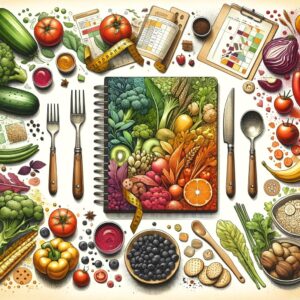
Food Journals
You’ve probably seen a form of food journal all over social media, however, the difference between a social media post about food and true food journal, is authenticity and reflection. Food and the experience surrounding food is inherently emotional (and frankly a privileged event for many). The opportunities to experience life centered on food are endless and can be extremely diverse, from the ordinary to the extraordinary, a journal is one way to document your experiences and discover the deeper side of your relationship with food.
Plant Journals
Plant journaling is interesting for those who love to garden or raise specialty plants. Did you know that some seedlings can sell for hundreds or even thousands of dollars? The better your plant journal, the better you’ll get at planting, raising, and enjoying your plants. A plant journal allows you to keep track of the progress of your plant’s development while also planning, organizing, and better understanding your plant’s care routine. You’ve probably even heard of people who talk or sing to their plants as a way to improve their growth and health. This is just one interest area that a journal might improve your experience in.
Travel Journals
Similar to food journaling, travel journaling is all over social media these days. From RVers to yachters, people are documenting their travel for the world to experience with them. Something the novice may miss is how meaningful the little details can be, for example, the expenses you incur, the off-the-beaten path scenery, and the mundane that turns out to be profound. It is the collection of your memories and adventures about your exploration that will stand the test of time, whether that exploration is in your back yard or across the globe, the experience can be just as beautiful and long-lasting.

Sports Journals
There are entire books written about personal experiences with sports, for example, Instant Play by Kramer spent 37-weeks on the New York Times Bestseller list. Your experiences captured through journaling may never be a New York Times Bestseller but they will offer meaningful memories for yourself and others.
This also is an exceptional exercise for athletes to capture notes about their training, recent performances, and difficulties during competitions. Journal writing helps to improve the cognitive function of athletes and reduces stress during performance. Very similar to reviewing film, a journal can help identify areas of perfection and areas of improvement at the finest detail, and that may make all the difference.
BE Journaling
If you combined all of the foundational and best practices of journaling built them on a foundation of social science research, you would get The BE Journaling Experience™. This is because BE Journals™ are designed by an Educational Psychologist and proven by real life individuals, couples, children, and families.
BE Journals™ combine the proprietary processes of BE Narrating, BE A.L.I.V.E., and BE Rooting to maximize your journaling experience. They offer all of the benefits of a free journal combined with the strengths of guided and structured journals. If you’re looking to start your journey with the most engaging and powerful journaling experience, you will love BE Journaling™.
BEGIN TODAY
You now see how meaningful, beautiful, and powerful journaling can be in your life. While we would certainly love for you to purchase a BE Journal and leverage the BE Journaling Experience in your life, we’re happy if you simply begin journaling no matter the specific route.
This process, when carried out ambitiously, will transform everything in your life in a positive way. It can be one of the most helpful and possibly cheapest tools for creating a better, more emotionally and mentally healthy lifestyle. You want to do it for yourself, not for us, not for anyone else, but for yourself.
So, we’re cheering you on as you create and discover the power of journaling. Whether that means a two word note of empowerment every week or a complete BE Journal, we are rooting for you and hoping you get the very best out of your journaling practice. If you ever want to take your journaling practice to the next level, we at BE Journaling will be here ready to help you in your BE Journaling Experience.
We Build Tools to Help You, BE You
Belonging + Empowerment
References
- Augustine, of Hippo, Sain, 354-430. (19401949). The confessions of Saint Augustine. Mount Vernon: Peter Pauper Press, 19401949.
- Rainer, T. (1978). The new diary: How to use journal for self-guidance and expanded creativity. Los Angeles: J.P. Tarcher.
- Progoff, I., & Progoff, I. (1992). At a journal workshop: Writing to access the power of the unconscious and evoke creative ability. Los Angeles: J.P. Tarcher.
- Baldwin, C. (2006). One to one: Self-understanding through journal writing. Lanham, MD: M. Evans.
- Falahati, R. (2003). The relationship between students’ iq and their ability to use transitional words and expressions in writing. Working Papers of the Linguistics Circle, 17, 11-19.
- Berkman, E.T. and Lieberman, M.D. (2009), Using Neuroscience to Broaden Emotion Regulation: Theoretical and Methodological Considerations. Social and Personality Psychology Compass, 3: 475-493. https://doi.org/10.1111/j.1751-9004.2009.00186.x
- Phelan, H. (2018, October 25). What’s all this about journaling? The New York Times. Retrieved November 8, 2021, from https://www.nytimes.com/2018/10/25/style/journaling-benefits.html.
- Torre, J. B., & Lieberman, M. D. (2018). Putting Feelings Into Words: Affect Labeling as Implicit Emotion Regulation. Emotion Review, 10(2), 116–124. https://doi.org/10.1177/1754073917742706
- Glass, O., Dreusicke, M., Evans, J., Bechard, E., & Wolever, R. Q. (2019). Expressive writing to improve resilience to trauma: A clinical feasibility trial. Complementary therapies in clinical practice, 34, 240-246.
- Waters, S. (2021, August 9). How to build resilience in the Workplace. How to build resilience in the workplace. Retrieved November 8, 2021, from https://www.betterup.com/blog/how-to-build-resilience-why-resilience-is-a-top-skill-for-the-workplace.
- Matthews, G. (2020, February). Goals Research Summary. Dominican Edu. Retrieved November 7, 2021, from https://www.dominican.edu/sites/default/files/2020-02/gailmatthews-harvard-goals-researchsummary.pdf.
- The benefits of journaling. (1997). Parks & Recreation (Arlington, Va.), 32(5), 68.
- Paula Rasich. (2003). Write now, sleep deeper. (Pen, Paper, Pillow).(health benefits of journaling). Prevention (Emmaus), 55(6), 164.
- Asbury, Casey, J., & Desai, K. (2018). Family eJournal: benefits of online guided group journaling for women. Journal of Public Mental Health, 17(3), 135–141. https://doi.org/10.1108/JPMH-01-2018-0008
- Quinn, & Peters, A. A. (2019). Positive Prompts: A Quick Exercise to Reduce Test Anxiety. Nurse Educator, 44(5), 249–249. https://doi.org/10.1097/NNE.0000000000000641
- (2020). Reflective Journaling: A Portal Into the Virtues of Daily Writing. The Reading Teacher, 73(5), 597–602. https://doi.org/10.1002/trtr.1877
- Giampietro, & Cavallera, G. . (2007). Morning and evening types and creative thinking. Personality and Individual Differences, 42(3), 453–463. https://doi.org/10.1016/j.paid.2006.06.027
- Bell, E. S., Bell, R. N., (1985). Writing and Mathematical Problem Solving: Arguments in favor of synthesis. School Science and Mathematics. 85(3), 210. https://doi.org/10.1111/j.1949-8594.1985.tb09614.x
- Davis, Choe, E., Meyers, J., Wade, N., Varjas, K., Gifford, A., Quinn, A., Hook, J. N., Van Tongeren, D. R., Griffin, B. J., & Worthington, E. L. (2016). Thankful for the Little Things: A Meta-Analysis of Gratitude Interventions. Journal of Counseling Psychology, 63(1), 20–31. https://doi.org/10.1037/cou0000107
- Murray, B. (2002, June). Writing to heal. Monitor on Psychology, 33(6). http://www.apa.org/monitor/jun02/writing
- (2014). The healing power of writing : a therapist’s guide to using journaling with clients (First edition.).
- Allison Utley & Yvonne Garza (2011) The Therapeutic Use of Journaling With Adolescents, Journal of Creativity in Mental Health, 6:1, 29-41, DOI: 1080/15401383.2011.557312
- Baikie, K., & Wilhelm, K. (2005). Emotional and physical health benefits of expressive writing. Advances in Psychiatric Treatment,11(5), 338-346. doi:10.1192/apt.11.5.338
- (2001). Reflection as a transforming process: student advanced nurse practitioners’ experiences of developing reflective skills as part of an MSc programme. Journal of Advanced Nursing, 34(5), 639–647. https://doi.org/10.1046/j.1365-2648.2001.01793.x
- Dyer, J., Gregerse, H. B., & Christensen, C. M. (2011). The Innovator’s DNA: mastering the five skills of disruptive innovators. Boston, Mass.: Harvard Business Press.
